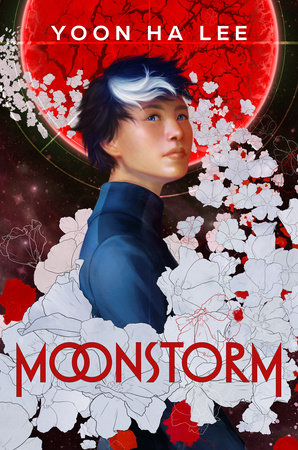One unidentified skeleton. Three missing men. A village full of secrets. The best-selling author of The Seven or Eight Deaths of Stella Fortuna brings us a sparkling—by turns funny and moving—novel about a young American woman turned amateur detective in a small village in Southern Italy.
THE LOST BOY OF SANTA CHIONIA
by Juliet Grames
Knopf, July 2024
(via The Gernert Company)

Most troubling, though, is the human skeleton that surfaced after the flood waters receded. Who is it? And why don’t the police come and investigate? When an old woman begs Francesca to help determine if the remains are those of her long-missing son, Francesca begins to ask a lot of inconvenient questions. As an outsider, she might be the only person who can uncover the truth. Or she might be getting in over her head. As she attempts to juggle a nosy landlady, a suspiciously dashing shepherd, and a network of local families bound together by a code of silence, Francesca finds herself forced to choose between the charitable mission that brought her to Santa Chionia, and her future happiness, between truth and survival.
Set in the wild heart of Calabria, a land of sheer cliff faces, ancient tradition, dazzling sunlight—and one of the world’s most ruthless criminal syndicates—The Lost Boy of Santa Chionia is a suspenseful puzzle mystery, a captivating romance, and an affecting portrait of a young woman in search of a meaningful life.
Juliet Grames is the best-selling author of The Seven or Eight Deaths of Stella Fortuna. Her essays and short fiction have appeared in Real Simple, Parade, and The Boston Globe, and she is the recipient of an Ellery Queen Award from the Mystery Writers of America. She is editorial director at Soho Press in New York.

 When Silvia and her mother finally land in a place called Island City, after being expelled from their ancestral home in a not-too-distant future, they end up living and working at The Morningside, a crumbling luxury tower where Silvia’s aunt, Ena, serves as the superintendent. Silvia feels unmoored in her new life because her mother has been so diligently secretive about their family’s past. Silvia knows almost nothing about the place she was born and spent her early years; nor does she know why she and her mother had to leave. But in Ena there is an opening: a person willing to give a young girl glimpses into the folktales of her demolished homeland, a place of natural beauty and communal spirit that is lacking in Silvia’s lonely and impoverished reality.
When Silvia and her mother finally land in a place called Island City, after being expelled from their ancestral home in a not-too-distant future, they end up living and working at The Morningside, a crumbling luxury tower where Silvia’s aunt, Ena, serves as the superintendent. Silvia feels unmoored in her new life because her mother has been so diligently secretive about their family’s past. Silvia knows almost nothing about the place she was born and spent her early years; nor does she know why she and her mother had to leave. But in Ena there is an opening: a person willing to give a young girl glimpses into the folktales of her demolished homeland, a place of natural beauty and communal spirit that is lacking in Silvia’s lonely and impoverished reality. HERE MEN FROM THE PLANET EARTH is Eliana Ramage’s debut novel about a young, queer Cherokee woman relentlessly determined to become an astronaut. It’s a book whose expansive heart, powerfully realized characters, thematic richness, and ambitious sweep are reminiscent of Gabrielle Zevin’s Tomorrow, and Tomorrow, and Tomorrow, by way of Andy Weir, Sterlin Harjo (Reservation Dogs) and Kelli Jo Ford.
HERE MEN FROM THE PLANET EARTH is Eliana Ramage’s debut novel about a young, queer Cherokee woman relentlessly determined to become an astronaut. It’s a book whose expansive heart, powerfully realized characters, thematic richness, and ambitious sweep are reminiscent of Gabrielle Zevin’s Tomorrow, and Tomorrow, and Tomorrow, by way of Andy Weir, Sterlin Harjo (Reservation Dogs) and Kelli Jo Ford.  Hwa Young was just ten years old when imperial forces destroyed her rebel moon home. Now, six years later, she is a citizen of the very empire that made her an orphan. Desperate to shake her rebel past, Hwa Young dreams of one day becoming a lancer pilot, an elite group of warriors who fly into battle using the empire’s most advanced tech—giant martial robots. Lancers are powerful, and Hwa Young would do anything to be the strong one for once in her life. When an attack on their boarding school leaves Hwa Young and her classmates stranded on an imperial space fleet, her dreams quickly become a reality. As it turns out, the fleet is in dire need of pilot candidates, and Hwa Young—along with her brainy best friend Geum, rival Bae, and class clown Seong Su—are quick to volunteer. But training is nothing like what they expected, and secrets—like the fate of the fleet’s previous lancer squad and hidden truths about the rebellion itself—are stacking up. And when Hwa Young uncovers a conspiracy that puts their entire world at risk, she’s forced to make a choice between her rebel past and an empire she’s no longer sure she can trust.
Hwa Young was just ten years old when imperial forces destroyed her rebel moon home. Now, six years later, she is a citizen of the very empire that made her an orphan. Desperate to shake her rebel past, Hwa Young dreams of one day becoming a lancer pilot, an elite group of warriors who fly into battle using the empire’s most advanced tech—giant martial robots. Lancers are powerful, and Hwa Young would do anything to be the strong one for once in her life. When an attack on their boarding school leaves Hwa Young and her classmates stranded on an imperial space fleet, her dreams quickly become a reality. As it turns out, the fleet is in dire need of pilot candidates, and Hwa Young—along with her brainy best friend Geum, rival Bae, and class clown Seong Su—are quick to volunteer. But training is nothing like what they expected, and secrets—like the fate of the fleet’s previous lancer squad and hidden truths about the rebellion itself—are stacking up. And when Hwa Young uncovers a conspiracy that puts their entire world at risk, she’s forced to make a choice between her rebel past and an empire she’s no longer sure she can trust.